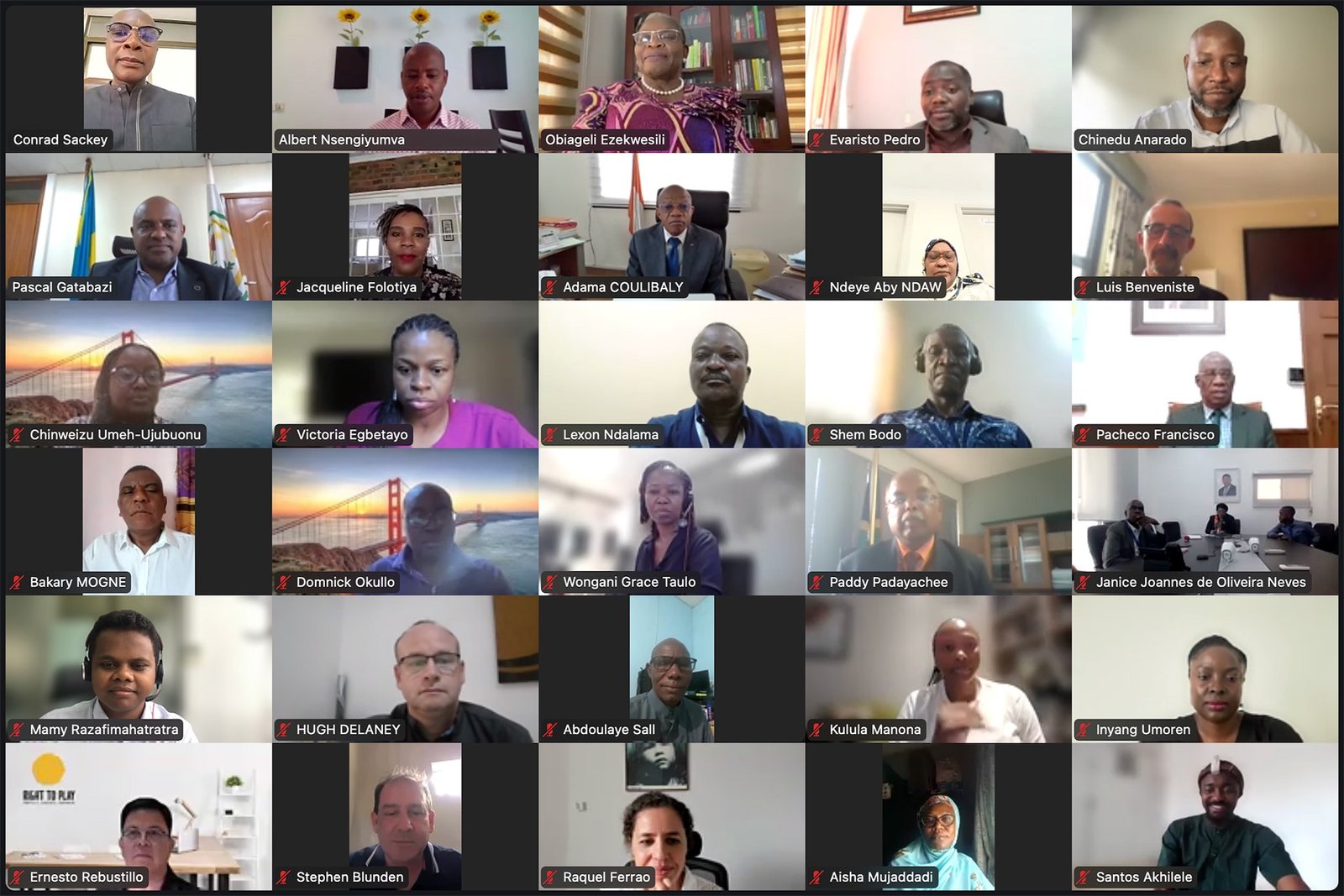African countries re-strategize on sustainable education financing amid global funding cuts; restate their commitment to ending learning poverty in Africa by 2035

Ministers of Education and senior government education officials from 20 African countries virtually convened on Wednesday, 26th March, for the 7th Africa Foundational Learning Ministerial Coalition Meeting. The session, co-organized by ADEA and HCA, was an opportunity for countries to reaffirm their commitment to foundational learning despite recent losses in global aid funding. The ADEA Executive Secretary, Albert Nsengiyumva, welcomed participants to the meeting chaired by the Minister of Education of Sierra Leone, Hon. Dr. Conrad Sackey. It focused on actionable strategies to sustain foundational learning initiatives following the shutdown of donor-funded programs, particularly USAID. The countries present not only showcased general resilience and innovative solutions to bridge the emerging funding gaps.
A thought-provoking presentation from Dr. Benjamin Piper, Director of Global Education at the Gates Foundation, triggered insightful discussions based on the seven strategies Ben proposed to help countries to navigate the shortfall while maintaining progress in foundational learning. These include ensuring country-led ownership of programs, optimizing financial efficiency, leveraging existing policy frameworks, engaging local expertise, sourcing alternative funding, adopting results-based approaches, and amplifying visibility for successful initiatives.
Some of the countries present at the meeting shared their ongoing efforts to integrate discontinued programs into national education frameworks. Malawi, Nigeria, Côte d’Ivoire, and Comoros emphasized the role of evaluations in identifying gaps and ensuring continuity. South Africa and Sierra Leone highlighted their results-based financing model to prioritize impactful interventions in early childhood care and education (ECCE). Mali acknowledged the funding loss but framed it as an opportunity to assert greater sovereign control over its foundational learning agenda. Meanwhile, Zambia reaffirmed its commitment to the Catch-Up Program while exploring alternative financing strategies.
The meeting also introduced a new coalition governance structure designed to enhance country ownership and leadership. Dr. Obiageli Ezekwesili, founder of Human Capital Africa (HCA) and a co-organizer of the coalition alongside ADEA, emphasized the need for stronger in-country engagement, demonstrated by Hon Dr. Conrad Sackey chairing the meeting and setting the stage for a clear roadmap for the coalition’s interventions throughout the year.
“Our achievements as a coalition are closely tied to our commitments at the country level,”
Minister Sackey stated.
“Let us embrace this opportunity with open minds, collaborative spirits, and unwavering dedication to share, learn, innovate, advocate, and implement foundational learning. Together, we can ensure that every child in Africa acquires the foundational skills needed to build a brighter future for themselves, their communities, and our continent.”
A notable highlight was an update from South Africa on the preparations for the G20 Summit under the country’s Presidency, where it is advancing the global education agenda by advocating for increased investment in foundational learning across the African continent, stronger mutual recognition of qualifications, and education professional development.
The session saw participation from Ministers of Education from Cameroon, Guinea-Bissau, Nigeria, and Sierra Leone, along with Angola’s Deputy Minister of Education and senior government officials from 14 countries including Guinea, Zanzibar, Cote d’Ivoire, Mali, Mauritius, Rwanda, Senegal, Togo, Zambia, Kenya, Comoros, Madagascar, DRC, and Malawi, South Africa. High-level global education stakeholders, including Pia Britto, Global Director of Education at UNICEF and Luis Benveniste, Global Education Director at the World Bank graced the meeting.
In closing, South Africa was nominated to host the next Coalition meeting in June 2025, continuing the mission to drive collective action towards eradicating learning poverty across Africa.